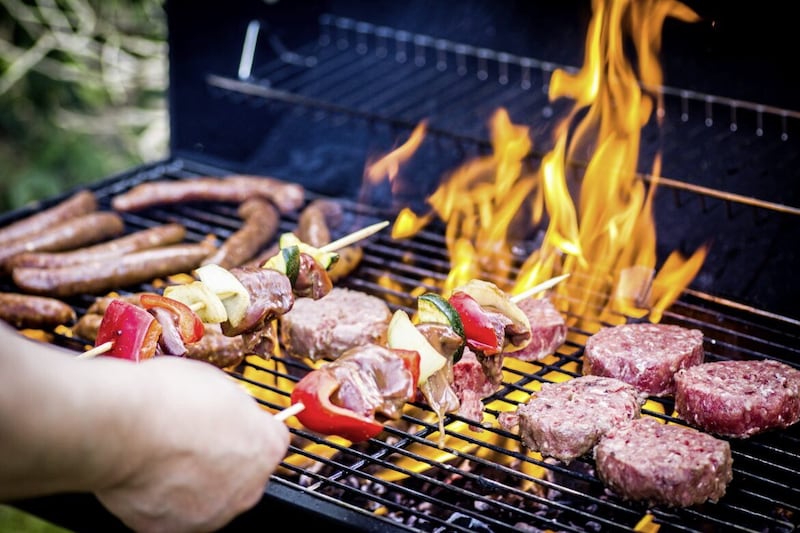RISING living costs are having a wide-ranging impact on our everyday lives, including when it comes to summer barbecues.
In fact, the cost of food and drink for a typical summer barbecue in the UK could be around £10 more than last year, according to new calculations by Canada Life.
The financial services provider, which used Office for National Statistics (ONS) figures to make the calculations, has put the cost of a typical barbecue at around £90, up from around £80 last summer.
Of course, the actual cost will vary depending on exactly what you buy and how many people you're catering for. In its basket of barbecue goods, Canada Life piled in products such as beef burgers, pork sausages, baking potatoes, chicken, meat-free sausages, veggie burgers, bread rolls, mayonnaise, cheese, salad ingredients, crisps, fizzy drink and alcoholic beverages.
How can you keep barbecue costs down?
If you're keen to make the most of summer barbecue opportunities, but conscious of your budget too, Canada Life also has some tips.
Spokesperson Shelley Greenwood suggests: "If you're hosting more than once this summer, don't throw out the charcoal after one use. Make sure you put out the fire safely and keep what is left in the barbecue for next time. Simply top up with new charcoal as needed."
Greenwood also suggests using price comparison apps such as Trolley to compare prices of items on your shopping list. "Then place your order through a cashback site to save even more," she adds.
She also suggests checking out apps for food in your local area that is being sold cheaply or perhaps even given away.
For example, the Too Good to Go app allows people to search for bags of food being sold cheaply at places such as grocery stores, restaurants and cafes that might otherwise be destined to go to waste.
Food sharing app Olio also helps stop surplus food going to waste, with users posting pictures of giveaways, including food and other items.
Greenwood also suggests looking out for "yellow sticker" food items, which have been marked down in the supermarket, like cuts of meat or fish.
Check these can be frozen and, if so, freeze them the same day and "simply defrost according to instructions ahead of your barbecue", adds Greenwood.
Also, rather than buying side dishes, go through your cupboards and fridge to see what ingredients could be transformed. Perhaps you could make your own pasta salad, or roast some tomatoes while you're cooking something else, to create side dishes.
You could also ask party guests to bring along a few sides to help share the costs. And if your priorities are more about having a summer gathering than firing up a barbecue, you could also consider by-passing the barbecue altogether and preparing food in your air fryer or slow cooker instead.
Greenwood adds: "This way, you're not reliant on the weather either."
Meanwhile there are some easy ways to prioritise fire and food safety at your next BBQ, according to kitchen expert House of Worktops - as long as you remember the following advice:
:: Keep your raw and cooked meat utensils separate. Using different plates and tongs for raw and cooked meat ensures cross-contamination can’t occur. If you’re working with limited containers, place cooked meat directly onto your guests’ plates so that the board or plate is only used to bring raw meat to the grill. Make sure to use hot, soapy water to wash anything that raw meat has covered thoroughly.
:: Make sure your meat and side dishes are covered. While it’s tempting to put on a spread and then turn all of your attention to the grill, it’s much safer to keep your side dishes covered with foil or clingfilm right up until you need to use them, to avoid any bugs or bacteria sneaking in. You’ll also want to keep your meat refrigerated until the grill has heated up - unless the product says it needs to reach room temperature first.
:: Avoid placing hot dishes on cold and wooden surfaces. Not only can placing hot dishes on your countertops cause blistering or burning but it can also make it harder for your guests to keep track of which containers are too hot to touch. Place glass or metal dishes on a wooden chopping board or cooling rack so that it’s easier to distinguish, and so you avoid damaging your kitchen surfaces.
:: Make sure your grill is clean before firing it up. The best time to clean your BBQ is immediately after it’s heated but before you start cooking again, as this will make it easier to get grease off and ensure you’re not contaminating food. Brush off the grates and racks once they’re cool with a wire brush, scraper, or scourer, and keep an eye out for any debris that may fall onto the hot coals while your food cooks.
:: Keep a bucket of water or sand nearby. Your BBQ should ideally be set at least 10 feet away from your house and should have a bucket of water or sand close by for emergency extinguishing. If your BBQ uses gas, don’t use water and instead opt for sand or salt, as water on a grease fire can cause a flare-up. Make sure to close the lid once adding your water/sand to help starve the fire of oxygen.


